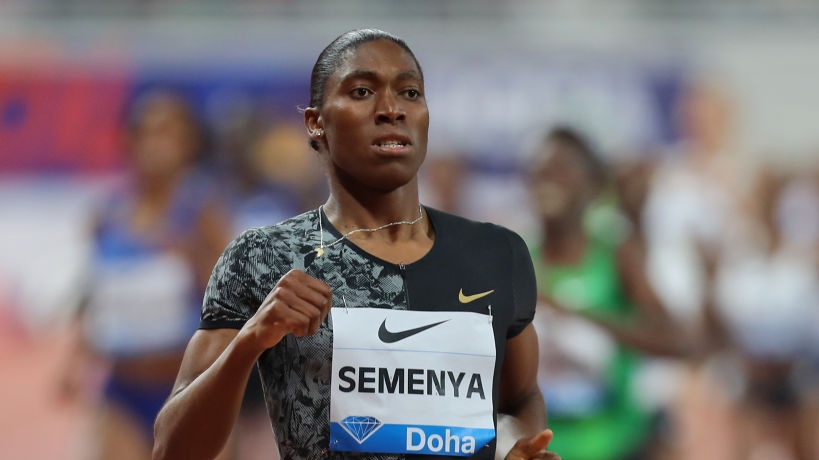Olympic track and field champion Caster Semenya has lost her long-standing legal battle against the sport’s governing body and its rules limiting women runners with naturally high testosterone levels.
According to the Associated Press, Switzerland’s supreme court upheld a 2019 ruling on Tuesday by the Court of Arbitration for Sport deeming World Athletics' rules were necessary for fair female competition.
“I am very disappointed by this ruling, but refuse to let World Athletics drug me or stop me from being who I am,” Semenya said. “Excluding female athletes or endangering our health solely because of our natural abilities puts World Athletics on the wrong side of history.”
A panel of five federal judges said it was prohibited in examining “whether the CAS decision violates fundamental and widely recognized principles of public order. That is not the case." They also said her "guarantee of human dignity" was not comprised by the ruling.
In 2009, she caught the attention of fans and critics alike when she won the gold medal in the 800 meters champion, The Guardian reported.
We are #CasterSemenya & the whole nation is behind her. ???? pic.twitter.com/yVzCn8yM15
— Mbuyiseni Ndlozi (@MbuyiseniNdlozi) September 9, 2020
Critics slammed the South African athlete who was diagnosed with a medical condition referred to as hyperandrogenism. The condition causes the body to produce high levels of testosterone in a woman's body, increasing muscle strength and mass, Reuters reports.
World Athletics argued that the condition gave her and other female athletes with similar levels of testosterone an unfair advantage.
In 2018, World Athletics introduced rules for runners with hyperandrogenism. Athletes with the condition were told to lower their testosterone levels to those of “a healthy woman with ovaries” by taking contraceptives, receiving a monthly injection or undergoing surgery, according to Reuters.
The rules that Semenya appealed would require her to lower her testosterone levels for at least six months prior to competitions.
Last year, she testified that taking birth control pills for nearly five years had detrimental side effects on her body and she felt more injury prone.
After her case was defeated on Tuesday, she announced her commitment to young female athletes and passion to advocate for their protection.
“I will continue to fight for the human rights of female athletes, both on the track and off the track, until we can all run free the way we were born. I know what is right and will do all I can to protect basic human rights, for young girls everywhere,” she said.
Tuesday’s decision also came at a financial loss to Semenya and South Africa’s track federation— both were mandated to pay $7,600 to the court and $8,700 toward World Athletics’ legal costs.
Greg Nott, the 29-year-old’s lawyer, said her legal council was “considering the judgment and the options to challenge the findings in European and domestics courts.”
However, any appeal made to the European Court of Human Rights would likely not be heard by a judgment until after the Tokyo Olympics in July 2021.
